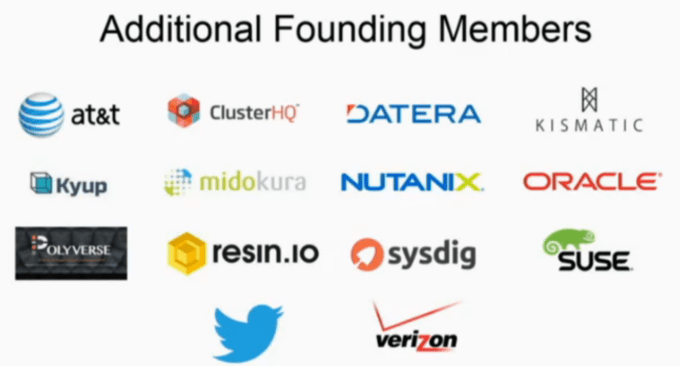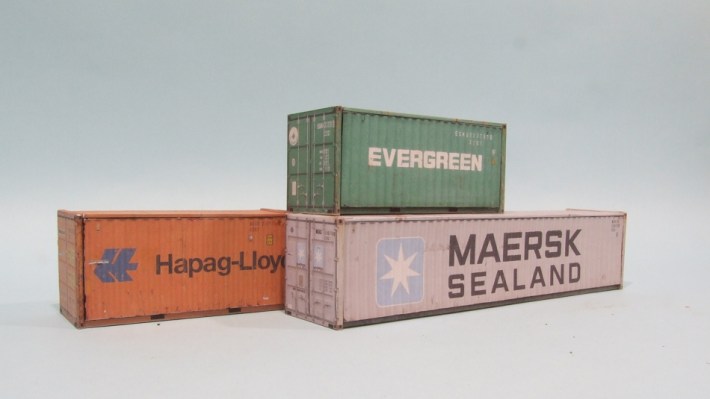A month ago, Docker and the Linux Foundation announced the Open Container Project at Docker’s developer conference. Now called the Open Container Initiative, the project is seeing rapid growth, as the Linux Foundation’s executive director Jim Zemlin announced at OSCON this morning. Not only have 14 new companies signed up for the project, but as Zemlin announced today, the OCI now also sports a draft charter.
The new partners backing the initiative, which will shepherd the future of the Docker container spec going forward in order to establish a common standard around containers, include AT&T, ClusterHQ, Datera, Kismatic, Kyup, Midokura, Nutanix, Oracle, Polyverse, Resin.io, Sysdig, SUSE, Twitter and Verizon (TechCrunch’s corporate overlords). They are joining founding members like Amazon, Microsoft, CoreOS, Docker, Intel, Mesosphere, Red Hat and others.
 As Docker’s VP of enterprise marketing David Messina told us, he believes the group of OCI backers now includes a good blend of large players, smaller companies and users. He especially noted that having Oracle on board now means the project will get more feedback around containers on Solaris — where Oracle has a lot of experience. Similarly, he believes that having more distributions, monitoring companies and large enterprises on board will make for better products in the end, given that they can all contribute their own expertise to the project.
As Docker’s VP of enterprise marketing David Messina told us, he believes the group of OCI backers now includes a good blend of large players, smaller companies and users. He especially noted that having Oracle on board now means the project will get more feedback around containers on Solaris — where Oracle has a lot of experience. Similarly, he believes that having more distributions, monitoring companies and large enterprises on board will make for better products in the end, given that they can all contribute their own expertise to the project.
“The overwhelming interest in the Open Container Initiative is representative of both the opportunity containers offer for application development and the challenges we face with fragmentation,” the Linux Foundation’s Jim Zemlin said in a statement today. “With such strong community support and collaboration, we’re confident this effort will rise to the opportunity.”
According to Docker engineer Patrick Chanezon, the idea behind the charter was to keep it very lightweight. There will be a technical oversight committee in case there are conflicts and a trademark board for the group’s upcoming certification program, which will launch in the coming months.
With the container ecosystem growing quickly, there is clearly some pressure to create common standards both around the containers themselves and some of the tools around them. Otherwise, the promise of container portability, after all, is hard to realize. With the Cloud Native Computing Foundation (CNCF), which was announced yesterday, the Linux Foundation is now part of another major container-related open source project, too — this time around Google’s Kubernetes container management and scheduling tool.
So why is the Open Container Project now called the Open Container Initiative? As Zemlin noted during his OSCON keynote, people confused it with the Open Compute Project, so the team decided to change the name a little bit.
